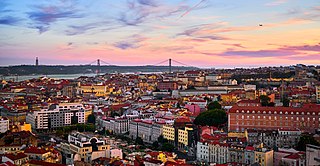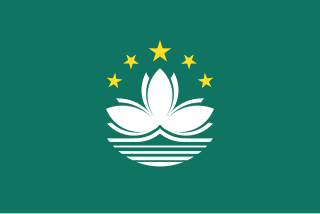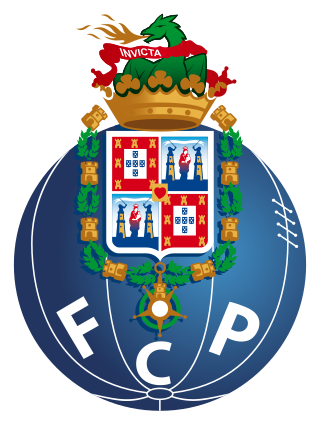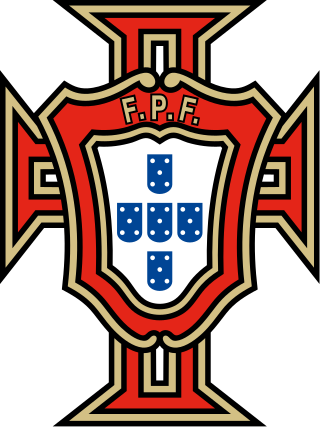See also
| Sovereign states |
|
|---|---|
| States with limited recognition | |
| Dependencies and other entities | |
| | This Portugal-related article is a stub. You can help Wikipedia by expanding it. |
Fauna of Portugal may refer to:

Brazil, officially the Federative Republic of Brazil, is the largest and easternmost country in South America and in Latin America. Brazil is the world's fifth-largest country by area and the seventh most populous. Its capital is Brasília, and its most populous city is São Paulo. The federation is composed of the union of the 26 states and the Federal District. It is the only country in the Americas to have Portuguese as an official language. Brazil is one of the most multicultural and ethnically diverse nations, due to over a century of mass immigration from around the world.

Lisbon is the capital and largest city of Portugal, with an estimated population of 548,703 as of 2022 within its administrative limits and 2,871,133 within the metropolis. Lisbon is mainland Europe's westernmost capital city and the only one along the Atlantic coast, the others being on islands. The city lies in the western portion of the Iberian Peninsula, on the northern shore of the River Tagus. The western portion of its metro area, the Portuguese Riviera, hosts the westernmost point of Continental Europe, culminating at Cabo da Roca.

Macau or Macao is a special administrative region of the People's Republic of China. With a population of about 680,000 and a land area of 32.9 km2 (12.7 sq mi), it is the most densely populated region in the world.

Portugal, officially the Portuguese Republic, is a country located on the Iberian Peninsula, in Southwestern Europe, and whose territory also includes the Macaronesian archipelagos of the Azores and Madeira. It features the westernmost point in continental Europe, its mainland west and south border with the North Atlantic Ocean and in the north and east, the Portugal-Spain border constitutes the longest uninterrupted border-line in the European Union. Its archipelagos form two autonomous regions with their own regional governments. On the mainland, Alentejo region occupies the biggest area but is one of the least densely populated regions of Europe. Lisbon is the capital and largest city by population, being also the main spot for tourists alongside Porto and Algarve.

Portuguese is a Western Romance language of the Indo-European language family originating from the Iberian Peninsula of Europe. It is the official language of Portugal, Brazil, Cape Verde, Angola, Mozambique, Guinea-Bissau and São Tomé and Príncipe, and has co-official language status in East Timor, Equatorial Guinea, and Macau. Portuguese-speaking people or nations are known as "Lusophones". As the result of expansion during colonial times, a cultural presence of Portuguese speakers is also found around the world. Portuguese is part of the Ibero-Romance group that evolved from several dialects of Vulgar Latin in the medieval Kingdom of Galicia and the County of Portugal, and has kept some Celtic phonology.

Futebol Clube do Porto, MHIH, OM, commonly known as FC Porto or simply Porto, is a Portuguese professional sports club based in Porto. It is best known for the professional football team playing in the Primeira Liga, the top flight of Portuguese football.

The federative units of Brazil are subnational entities with a certain degree of autonomy and endowed with their own government and constitution, which together form the Federative Republic of Brazil. There are 26 states and one federal district. The states are generally based on historical, conventional borders which have developed over time. The states are divided into municipalities, while the Federal District assumes the competences of both a state and a municipality.

Sport Lisboa e Benfica, commonly known as Benfica, is a professional football club based in Lisbon, Portugal, that competes in the Primeira Liga, the top flight of Portuguese football.

The Portugal national football team has represented Portugal in men's international football competitions since 1921. The national team is controlled by the Portuguese Football Federation (FPF), the governing body for football in Portugal. Portugal's home games are played at the Estádio Nacional stadiums in Portugal, and its primary training ground and technical headquarters, Cidade do Futebol, is located in Oeiras. The head coach of the team is Roberto Martínez, and the captain is Cristiano Ronaldo, who also holds the team records for most caps and most goals.

Cristiano Ronaldo dos Santos Aveiro is a Portuguese professional footballer who plays as a forward for and captains both Saudi Pro League club Al Nassr and the Portugal national team. Widely regarded as one of the greatest players of all time, Ronaldo has won five Ballon d'Or awards, a record three UEFA Men's Player of the Year Awards, and four European Golden Shoes, the most by a European player. He has won 33 trophies in his career, including seven league titles, five UEFA Champions Leagues, the UEFA European Championship and the UEFA Nations League. Ronaldo holds the records for most appearances (183), goals (140) and assists (42) in the Champions League, goals in the European Championship (14), international goals (128) and international appearances (206). He is one of the few players to have made over 1,200 professional career appearances, the most by an outfield player, and has scored over 890 official senior career goals for club and country, making him the top goalscorer of all time.

Sporting Clube de Portugal, otherwise referred to as Sporting CP or simply Sporting, or as Sporting Lisbon and Sporting Portugal in other countries, is a Portuguese sports club based in Lisbon. Having various sports departments and sporting disciplines, it is best known for its men's professional football team playing in the Primeira Liga, the top flight of Portuguese football.

The Primeira Liga, officially known as Liga Portugal Betclic for sponsorship reasons, is the top level of the Portuguese football league system. Organised and supervised by the Liga Portugal, it is contested by 18 teams since the 2014–15 season, with the three lowest-placed teams relegated to the Liga Portugal 2 and replaced by the top-three non-reserve teams from this division.

The Supertaça Cândido de Oliveira is an annual Portuguese football match played since 1979 between the winners of the top-tier league and cup competitions.a The match and trophy are named after former Portuguese player, coach and sports journalist Cândido de Oliveira. Recognised and organised by the Portuguese Football Federation since 1981, the Supertaça is usually played in August, before the start of the league season.

The Taça da Liga, known outside Portugal as Portuguese League Cup, is an annual club football competition organised by the Liga Portuguesa de Futebol Profissional (LPFP) for teams competing in the top two tiers of Portuguese football – the Primeira Liga and Liga Portugal 2. Unlike Portugal's other domestic cup competition, the Taça de Portugal, the winners of the Taça da Liga do not qualify for European competitions.

The Kingdom of Portugal was a monarchy in the western Iberian Peninsula and the predecessor of the modern Portuguese Republic. Existing to various extents between 1139 and 1910, it was also known as the Kingdom of Portugal and the Algarves after 1415, and as the United Kingdom of Portugal, Brazil and the Algarves between 1815 and 1822. The name is also often applied to the Portuguese Empire, the realm's overseas colonies.

The Order of Prince Henry is a Portuguese order of knighthood created on 2 June 1960, to commemorate the quincentenary of the death of the Portuguese infante Prince Henry the Navigator, one of the main initiators of the Age of Discovery. Minor reforms of the constitution of the Order occurred in 1962 and 1980.

The Nomenclature of Territorial Units for Statistics (NUTS) is developed by Eurostat, and employed in both Portugal and the entire European Union for statistical purposes. The NUTS branch extends from NUTS1, NUTS2 and NUTS3 regions, with the complementary LAU sub-categorization being used to differentiate the local areas, of trans-national importance.

The Taça de Portugal is an annual association football competition and the premier knockout tournament in Portuguese football. For sponsorship reasons, it has been known as Taça de Portugal Placard since the 2015–16 season. Organised by the Portuguese Football Federation since it was first held in 1938, the competition is open to professional and amateur clubs from the top-four league divisions. Matches are played from August–September to May–June, and the final is traditionally held at the Estádio Nacional in Oeiras, near Lisbon. The winners qualify for the Supertaça Cândido de Oliveira and the UEFA Europa League.